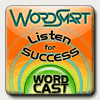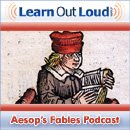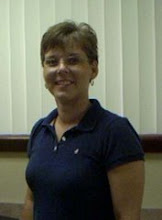Carol Dwech speaks about mindsets. She begins by explaining the "Fixed" mindset, that is the display of intelligence or to look smart. This mindset has to make the person feel smart. In contrast is the "Growth" mindset. This mindset is the application and teaching that the brain is a muscle that increases intelligible skills.
An eight session workshop involving students was established one using study skill with applications of the "Growth" mindset and the other just study skills. The students using only study skills declined in academics, while the group with "Growth" mindset excelled in academics. It was reported that teachers could indicate the students participating in the "Growth" mindset sessions.
The "Growth" mindset was tested by race car drivers in order to achieve optimal performance. Ms. Dwech explained that the difference between the winner and the loser was how they handled mistakes. The "Growth" mindset allowed the driver to remain the "zone". The drivers admitted mistakes and overcame them, which allowed for "Growth".
As an educator it is important that the "Growth" mindset be applied in the classroom. This allows students to identify mistakes while developing a solution, much like the race car driver. If the student has a "Fixed" mindset, then they only want to display intelligence not actually increase intelligence. In other words, "Fixed" mindsets leads to "burp-back education", as Dr. Strange says. Educators must teach students how to use the "Growth" mindset effectively in order to increase intelligence to optimal performance. They must understand that showing is not as important as knowing!!
Monday, October 27, 2008
Wednesday, October 22, 2008
Interaction Tip

I used wiki spaces for my electronic interaction. It worked, I now have a contact. It's simple just create a wiki account and add shifthappens to your Wiki Favorites, it's listed on your dashboard. However don't expect feedback until you are accepted by shifthappens. After you are accepted then you can email everyone that has shifthappens listed as a favorite. More than likely you will get a response. Hope this helps. Just click on wikispaces to start your wiki account.
Tuesday, October 21, 2008
K-5 Video Pod Cast - Solar Eclipses & What is a Plant?

As I began to search for topics provided by iTunesU in the Featured Provider, WGBH, K-5, Teacher Domain I discovered a couple that interest me. A clip about the Solar Eclipses was the first I chose. It explained what a solar eclipse is. An eclipse is the shadow of the moon on earth. The sun shines on both the earth and the moon, however the moon is smaller than the earth and only shadows a small portion. The areas that receive a full eclipse is referred to as the umbra. An area of a partial eclipse is referred to as a penumbra. The second explored the question, What is a Plant? In the clip the IAU definition of a plant is given. A plant must orbit a star, have enough mass to maintain gravity, must be round and must have cleared its neighborhood. This definition the
 was established in 2006 nullified Pluto as a plant instead it is considered a dwarf plant, because it has not cleared its neighborhood. This is due to the fact that Pluto crosses with Neptune, therefore not being cleared. However what is interesting is that Neptune has not cleared Pluto, so is Neptune a plant????Hmmmmm. Just something to ponder!
was established in 2006 nullified Pluto as a plant instead it is considered a dwarf plant, because it has not cleared its neighborhood. This is due to the fact that Pluto crosses with Neptune, therefore not being cleared. However what is interesting is that Neptune has not cleared Pluto, so is Neptune a plant????Hmmmmm. Just something to ponder!As educators information provided by these pod cast can be beneficial to both student and teacher. Through this technology students can experience enhanced learning experiences, while teachers advance their own teaching skills.
There is nothing better than the student to have the ability to actually see what is being taught. These pod cast allow the student to observe how and why. Just as the TV is influential in students so can pod casts. They desire to see instead of figuring it out. If the information is presented in a way for the them to better understand should not all educators grasp hold of such a influential tool, as pod cast and its FREE!
While doing research on these pod cast I stumbled across something interesting. You can visit www.google.com/sky click on solar system and actually see the plants as they lie in space. It's COOL!!!
Friday, October 17, 2008
Mr. Sullivan "Accessibility to All"

On October 2 Mr. Sullivan was the guest speaker of our EDM310 Class. He educated us on "Accessibility to All". It was interesting to learn the different accessibility available. He shared with us some programs and devices that are used by the blind. It diffidently opened by eyes to be more aware in my web practices. I now take that extra effort to enter in the text to be read about pictures and the sources. It was so wonderful to see an inspiration as Mr. Sullivan. His passion of educating is something that stands out.
Monday, October 13, 2008
Video Podcast: The Edible School Yard & A Night in the Global Village
The Edible School Yard
In this podcast a group of 6th graders of Martin Luther King Junior Middle School plant, harvest and eat from the garden they maintain. The founder of this project is Alice Waters. The garden serves as the center of teaching. Students learn social studies, math, science and life skills, while also including basic ecology. This enables the students to better understand environmental concerns and the value of hard work.
A Night in the Global Village
This podcast informs us of the Global Village, which is a re-creation of communities of under developed countries. Students from Denver, Colorado visit Perryville, Arkansas, where the Global Village is located. At the village student experience first hand survival in substandard living conditions. Students are split up in groups which experience re-created living conditions in Guatemala, Thailand, Zimbabwe, Urban, Appalachian and Refugee camps. All but one camp the Refugee camp is allowed one resource, like water, food, wood etc and a bucket of other usable resources. The camps must work together in order to have a successful community.
As an educator both of the above podcast can be very useful in the classroom. These cast relate to students, because they see other students involved. This allows them to understand that learning is all around you, as illustrated in the podcast. These videos were from Edutopia, a great learning resource.
So many students are under the misconception that learning is limited to a textbook. In my opinion that is the problem with the students of today. Students should be able to explore and learn, that's what makes learning FUN!!
In this podcast a group of 6th graders of Martin Luther King Junior Middle School plant, harvest and eat from the garden they maintain. The founder of this project is Alice Waters. The garden serves as the center of teaching. Students learn social studies, math, science and life skills, while also including basic ecology. This enables the students to better understand environmental concerns and the value of hard work.
A Night in the Global Village
This podcast informs us of the Global Village, which is a re-creation of communities of under developed countries. Students from Denver, Colorado visit Perryville, Arkansas, where the Global Village is located. At the village student experience first hand survival in substandard living conditions. Students are split up in groups which experience re-created living conditions in Guatemala, Thailand, Zimbabwe, Urban, Appalachian and Refugee camps. All but one camp the Refugee camp is allowed one resource, like water, food, wood etc and a bucket of other usable resources. The camps must work together in order to have a successful community.
As an educator both of the above podcast can be very useful in the classroom. These cast relate to students, because they see other students involved. This allows them to understand that learning is all around you, as illustrated in the podcast. These videos were from Edutopia, a great learning resource.
So many students are under the misconception that learning is limited to a textbook. In my opinion that is the problem with the students of today. Students should be able to explore and learn, that's what makes learning FUN!!
Saturday, October 11, 2008
AVL - Alabama Virtual Library

The Alabama Virtual Library (AVL) is a database of magazines, journals and newspaper articles. This information is only accessible at your local high school or college or by obtaining an AVL card and personal access code for home access. The card and code can be obtained at your local Alabama library with proof of residency and eligibility for a public library card. The code is issued in order for the researcher to access the information from remote locations. However the access is limited to only one session at a time. That is once you have accessed AVL no one else is allowed access under your code. You can search the information by age, topic, particular magazine or journal or specific database. These databases are packed full of useful information and resources about any subject.
Sunday, October 5, 2008
Podcast
I have to say that I had by doubts about pod casting. I do confess that after figuring out how they work and the technology pod casting brings to the table my doubts are no more. After listening to the pod casts in the assignment I began to do a little surfing on my own. Wow, was I shocked to find all the information that is offered through pod casting. My 12 year old son even listened to a story, "Robinson Crusoe" to be exact. I was in amazement that he actually sat their with the ear phones in and actually listened.
SMARTBoard Lessons proved to be an informative pod cast. I chose to listen to lesson 146. The lesson was about clouds and cloud formation. The pod casters were Ben Hazzard, in Port Hampton, Ontario and Joan M. Badger of Lake Winnipeg. The pod casters have received many awards to include: Exemplary Educators, Microsoft Innovative Teachers and Edublog 2007 "Best Use of Audio". The cast provided additional links and information about Wordle, which makes word clouds and the Whiteboard Challenge in addition to the cast content.
In KidCast Dan Schmit provided and information way to help children be more descriptive. The lesson was titled "A Picture is Worth a 1000 Words", lesson 46. In this lesson he shared a process to help children be more in dept in their writing. A photo is used as the topic of the writing and he tells the children to generate 20 questions about the photo. These questions are used to help the children write a more descriptive narrative.
The reactions of students in San Diego about technology were discussed in the ConnectLearning pod cast. Educators meet in order to discuss how technology motivates children. It is express that technology allows children to be more personal and responsible for their own learning. Children work harder when they know their peers will be reading their work as it is posted to blogs. This in turn allows for children to have fun as they learn.
Sheryl Oates and Sheryl Neesbraum Beach, via phone discussed how to help the excitement after convention in the EdTech Talk pod cast. They expressed their concern about how teachers are motivated during and after conference, but lose the motivation after a while. Strategies of community learning were discussed. If the community is motivated then the teachers will be.

I found the first four pod cast interesting and informative but chose to use other pod cast to complete the assignment. WordSmart WordCast introduces five words of a particular theme each week. This week's theme was history. I found this pod cast helpful in that it improves vocabulary. I myself fall short of having a accelerated vocabulary and this would be helpful in improving that weakness.

Another podcast the was informative to me was Aesop's Fables, through LearnoutLoud.com. This pod cast offers children varies tales of virtuous living as written by Aesop. These tales of virtuous living could be explained to children as they relate to real life situations.
SMARTBoard Lessons proved to be an informative pod cast. I chose to listen to lesson 146. The lesson was about clouds and cloud formation. The pod casters were Ben Hazzard, in Port Hampton, Ontario and Joan M. Badger of Lake Winnipeg. The pod casters have received many awards to include: Exemplary Educators, Microsoft Innovative Teachers and Edublog 2007 "Best Use of Audio". The cast provided additional links and information about Wordle, which makes word clouds and the Whiteboard Challenge in addition to the cast content.
In KidCast Dan Schmit provided and information way to help children be more descriptive. The lesson was titled "A Picture is Worth a 1000 Words", lesson 46. In this lesson he shared a process to help children be more in dept in their writing. A photo is used as the topic of the writing and he tells the children to generate 20 questions about the photo. These questions are used to help the children write a more descriptive narrative.
The reactions of students in San Diego about technology were discussed in the ConnectLearning pod cast. Educators meet in order to discuss how technology motivates children. It is express that technology allows children to be more personal and responsible for their own learning. Children work harder when they know their peers will be reading their work as it is posted to blogs. This in turn allows for children to have fun as they learn.
Sheryl Oates and Sheryl Neesbraum Beach, via phone discussed how to help the excitement after convention in the EdTech Talk pod cast. They expressed their concern about how teachers are motivated during and after conference, but lose the motivation after a while. Strategies of community learning were discussed. If the community is motivated then the teachers will be.

I found the first four pod cast interesting and informative but chose to use other pod cast to complete the assignment. WordSmart WordCast introduces five words of a particular theme each week. This week's theme was history. I found this pod cast helpful in that it improves vocabulary. I myself fall short of having a accelerated vocabulary and this would be helpful in improving that weakness.

Another podcast the was informative to me was Aesop's Fables, through LearnoutLoud.com. This pod cast offers children varies tales of virtuous living as written by Aesop. These tales of virtuous living could be explained to children as they relate to real life situations.
Subscribe to:
Comments (Atom)

